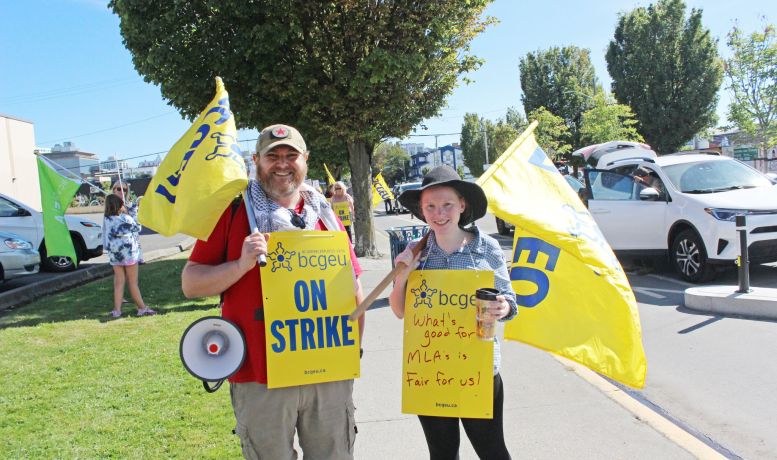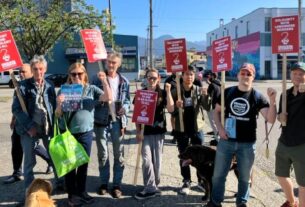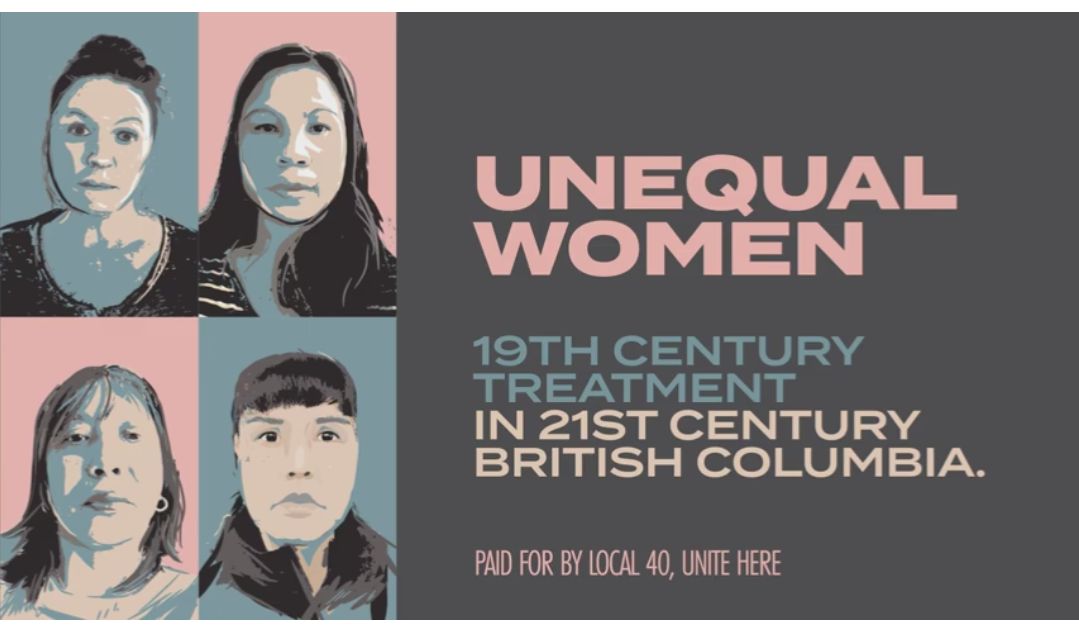Written by BC Public Sector workers.
Only a slim majority of BCGEU’s members voted to ratify the recent agreement with the BC government. According to the union, 71 percent of the 32,600 members voted and only 53.4 percent voted Yes. The difference between the number of yes and no votes is around 1,500 members.
This follows HEU members’ acceptance of a similar lousy agreement, with 64 percent in favour, and 36 percent opposed — a significant opposition. HEU’s leadership hinted at the level of anger at the agreement in its statement saying, “the vote results should also signal to government and health employers that these and other measures need to be implemented quickly.”
Neither agreement has a full cost-of-living adjustment (COLA), which at a time of raging inflation and soaring interest rates means that workers will have their living standards cut. So much for “heroes.”
Missed Opportunity
These two agreements will set the benchmark for other public sector workers in BC — educators, nurses, health professionals, etc. It is highly unlikely that the NDP government will agree to anything better than what has been already agreed.
In May the BCGEU had an impressive campaign for a strike vote, winning 95 percent support. However, this powerful mandate was not fully mobilized. There were no rallies of all BC’s public sector workers to build support. Every city and town in the province should have seen joint rallies of teachers, care workers, nurses, ferry workers and many more. The unity of workers would have been powerful.
Instead, each union proceeded separately and BCGEU only called out on strike around 1,000 workers in the BC Liquor warehouses, out of the over 32,000 covered by the strike vote. They did not use the power they had.
The offer was sent to the membership without a recommendation. If instead the union leaders had called for a “no” vote, the response would have been powerful as nearly half voted no without any leadership. A no vote would have been a powerful message to the government to bring forward an agreement, that as a bare minimum, defended living standards.
Union Leaders and the NDP
It is a disgrace that the NDP, which is supported by many unions, did not automatically offer a full COLA agreement. Why should BC’s workers pay for the crisis they did not cause? BC’s public sector workers kept the province running during COVID. They should not suffer a cut in living standards.
The NDP claims to support workers, but it clearly does not as far as their wages are concerned. The failings of the NDP should not be covered up by union leaders. It is widely believed, with good reason, that the leadership did not push for a united campaign or reject the offer as they did not want to “embarrass” the NDP. Union leadership should not save the NDP’s face at the cost of workers and union members.
For a Fighting Union Leadership
To defend members in a time of inflation and government attacks, the unions need leaders who energetically mobilize the membership with positive campaigns. The union leaders need to change course.
If they do not change their approach, the membership will need to organize to build a new leadership that will stand up for fellow workers.
Ontario’s public sector workers, who are in presently in negotiations, should reject the failed tactics of BC’s unions and demand a united campaign of all public sector unions in a determined campaign, including co-ordinated strikes, to win a full COLA and reject any cuts to pay and conditions.
Socialist Alternative campaigns for Democratic and Militant Unions that:
- Are run by and for the membership to campaign for better pay and working conditions.
- Demand Cost-of-Living Adjustment (COLA) clauses in all union contracts, and open existing contracts to include COLA.
- Work to repeal all anti-union laws. Full union rights for all from day one at work. Right to strike for all workers. No government back-to-work legislation. Fully enforce health and safety legislation.
- Play a leading role in building broader movements for social change and in the building of a mass workers’ party.
- Organize the unorganized with a bold campaign focused on youth, women, people of colour and migrant workers. Solidarity with the struggles of workers and the oppressed internationally — an injury to one is an injury to all.
- The full-time union officials and representatives elected regularly from the membership, are subject to recall and receive the same wages as those they represent.
If you agree with these policies and would like to help build fighting unions, join Socialist Alternative.




